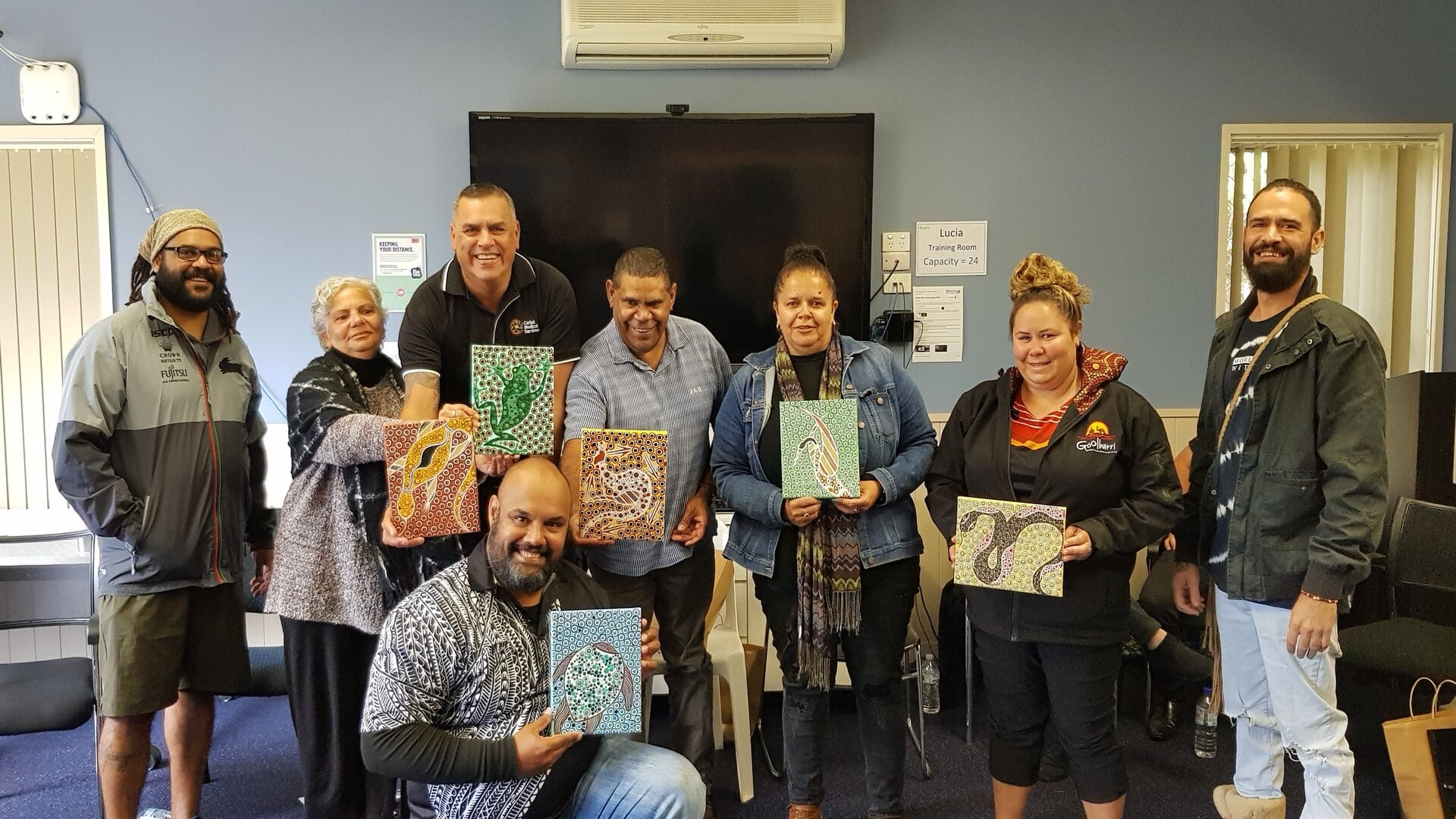
Early May marked the culmination of a 4-week journey for practitioners working with First Nations families who are impacted by domestic and family violence.
This journey took the form of a yarning circle, and was a joint initiative of Carbal Medical Services, Goolburri, WorkUp and Mercy Community.
yarning circle noun: a gathering of people who sit in a circle to share experience, knowledge, or ideas; a place where such a meeting is held*
Kylie Henry, Program Manager for several of our Family & Young People services in Toowoomba, was the Project Lead, and helped to make this valuable gathering happen.
Listening, learning and sharing views
The purpose of the Yarning Circle was to create a safe space where Aboriginal and Torres Strait Islander practitioners could have a yarn with community service professionals, and share their knowledge and understanding on how best to work with First Nations families in a culturally informed and sensitive way.
Harry Pitt, Aboriginal and Torres Strait Islander Cultural Lead at Mercy Community, facilitated the workshop with the following panellists: Laurie Stewart (Mercy Community); Beverly Mitchell (Goolburri); Charlie Rowe (Carbal Medical Services); Alana Palm (Mercy Community); and Jenny Aaskov (Act for Kids).
“The overall concept and cultural design were a first for me, as a Torres Strait Islander man and guest,” said Harry.
“The panelists were able to provide a professional, cultural and personal account of how to engage, interact and build trust, to ensure the right information is captured and information is shared for the benefit of everyone.”
“Looking at domestic and family violence through a cultural lens provided an historical overview of intergenerational trauma and systematic racism. The group was able to unpack workplace myths and realities in a safe and sensitive way,” said Harry.
Themes of The Yarning Circle
The Yarning Circle consisted of four sessions:
- Understanding how colonisation and institutional racism has impacted First Nations People.
- Understand intergenerational trauma and why taking a trauma informed approach when working with Indigenous families is so important.
- Understand the traditional roles of men and women in Indigenous societies and how these roles have been impacted by colonisation.
- Understanding the importance of family networks for First Nations People and the role of elders. Understanding how Indigenous communities are working to address domestic and family violence.
“From the very first session,” said Harry, “everyone agreed that there are many factors at play when it comes to navigating the right services for Aboriginal people and/or Torres Strait Islander people across the sector.”
“The Yarning Circle is so much more than an intellectual discussion,” said Harry. “It supports a heartfelt connection to spirit, which is essential when it comes to supporting Aboriginal and/or Torres Strait Islander people.
Towards reconciliation and healing
There was an overwhelmingly positive response to the Yarning Circle, according to Harry.
“Some members of the group were moved to tears… there was also laughter and a contagious energy to continue the journey with more Yarning Circles, not just from the attendees but from the organisations involved. These sessions were reconciliation in action. Together we can make a profound difference and healing.”
Harry wasn’t the only one who came away from The Yarning Circle feeling inspired, with participants providing the following feedback:
“These sessions have broken down my fear of getting things wrong in approaching First Nations People.”
“Learning about culture is a privilege and gives me hope for both Indigenous and Non-Indigenous peoples.”
“I have so much to learn – thank you for helping me learn.”
“I just want to come to more of them. I think the continuation of these is the most important thing.”
“Cultural integration, relationships, and pathways are not to be feared, nor dismissed,” said Harry. “We have been practicing these pathways for generations, and if we can collaborate to deliver services with humility, we then can better serve those members of our community affected by domestic and family violence.”
Thanks to Laurie Stewart, Aboriginal and Torres Strait Islander Regional Practice Lead, and Perry Bowe, Regional Director, Family and Young People Services Toowoomba and Greater Downs, for additional support in getting The Yarning Circle off the ground.
*Source: Australian National University School of Literature, Languages and Linguistics
From left to right in feature image:
David McCarthy, Jenny Aaskov, Charlie Bowe, Laurie Stewart, Alana Palm, Beverly Mitchell, Aaron Blades and kneeling, Harry Pitt.



